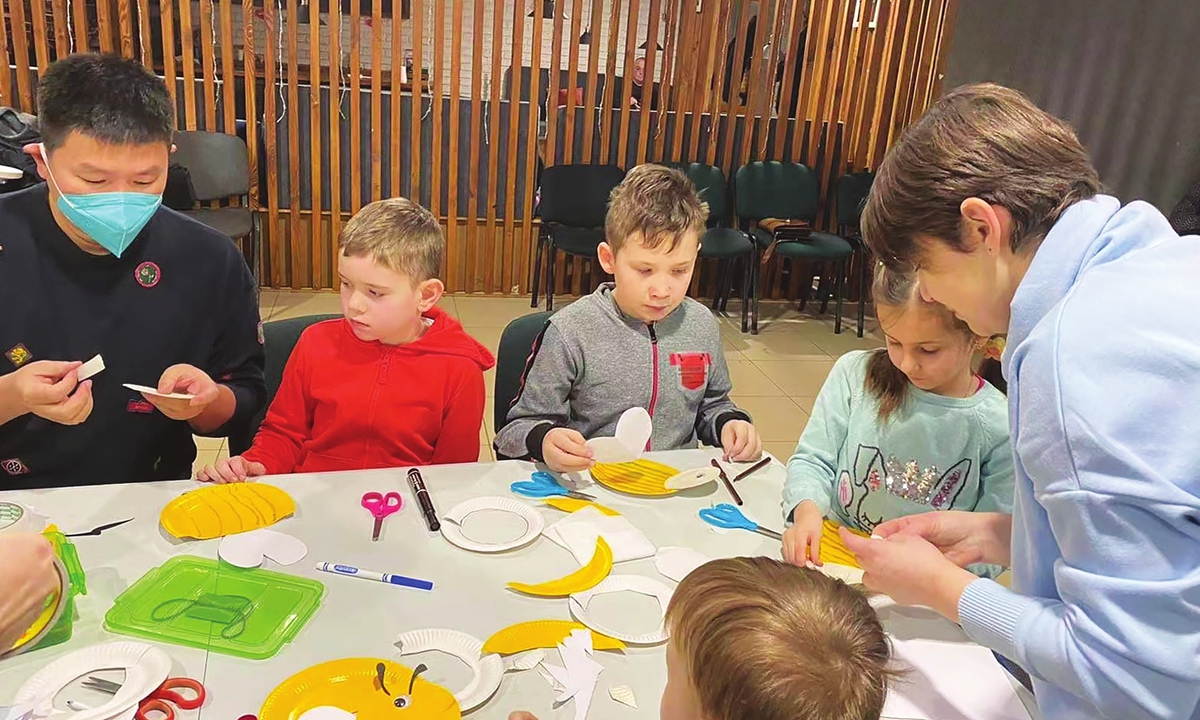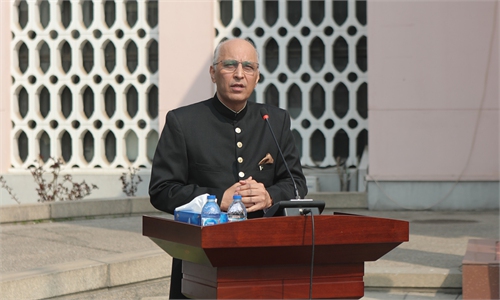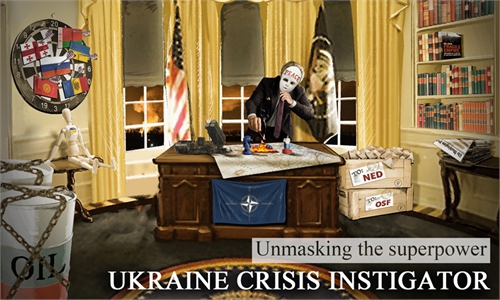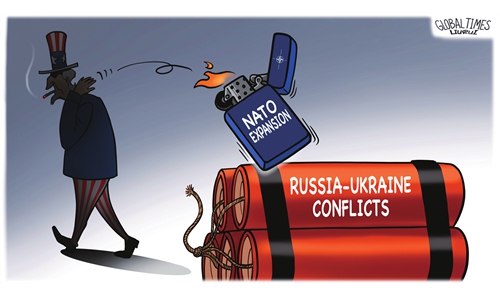ARTS / ART
Chinese student stays in Ukraine to help children through art
Light in the darkness

Ke Yi (1st from left) teaches Ukrainian kids in a bomb shelter in Lviv, Ukraine. Photo: Courtesy of Ke Yi
As an air-raid siren sounds outside of the window, Ke Yi, a 35-year-old PhD student from Southwest China's Yunnan Province, talks to the Global Times from a bomb shelter in Lviv, the largest city in western Ukraine.
He told the Global Times that the air-raid sirens that go off frequently at night had left him feeling haggard as he was unable to sleep well.
He explained that when the air-raid sirens sound once, people need to head to the bomb shelter, while sounding twice is the signal for all clear. "I'm very sensitive to all kinds of sounds now. My nerves get super tense even when I hear a little tiny sound near me," Ke said.
He noted that the closest he has gotten to the war so far was hearing the huge explosion that hit some 20 kilometers away from Lviv. "The loud sound really scared me. I saw my house roof shake violently," he noted.
Two days later, he heard four more similar explosions.
The fear of war and the concerns for his parents and friends in China once made Ke consider return home. But as he was about to sign up for evacuation, he felt regretful. "I am reluctant to leave here like a deserter. I want to stay and help more people," he said.
Nearly all Chinese nationals have been evacuated from Ukraine in early March, the Chinese Embassy in Ukraine confirmed to the Global Times.
Unexpected experience
After graduating from Yunnan Normal University in 2010, Ke took a job of working on some cruises. With the salary he saved, he decided to continue his studies by pursing a master's degree in Ukraine.
Ke studied Russian at the University of Kyiv for one year in 2015, and then shifted to oil painting and earned a master's degree at the Kharkiv State Academy of Design and Arts. Prior to the war, he was in the middle of his third year of PhD study in art at the Lviv National Academy of Arts in Lviv.
Ke said he had never thought he would live through a war when he studied in the country.
As the largest city in western Ukraine, Lviv has become the best choice for people evacuating to Europe from eastern or central Ukraine. According to Ke, it only takes an hour and a half to drive from Lviv to the Polish border, and about 200,000 people transit through the city every day.
Doing his best
As an art major, Ke gained a lot of experience teaching kids while he was in China. He once volunteered to teach art to children in Wenchuan, Southwest China's Sichuan Province, after the devastated earthquake in 2008.
After the outbreak of the war and at the suggestion of his landlord's wife, Ke began teaching classes in the air-raid shelter for Ukrainian children whose schools have closed.
According to Ke, each class might have about 20 kids ranging from 5 to 12 years old. However, as the class is held in the shelter, once the sirens sound, they have to put away their desks and the blackboard and end the class immediately to make room for people coming in.
In one class, there are about four or five children who come to take refuge with their families from the east. Some of them will stay on, while others will just stay here as a transit point and then go to Poland in a few days.
"Those who choose to stay here might think their roots are still here," Ke said.
In Ke's eyes, those Ukrainian children are not any different from Chinese kids. They are all very innocent and behave like "angels." But some kids coming from the war zone, especially those accompanied only by their mothers, tend to be more quiet than their peers.
Besides teaching, Ke also helps people from the war zone settle down or transit to Poland.
Since the outbreak of the war, Ke said he has received a lot of money in the form of donations from many of his friends and even some strangers from China through WeChat. They left many heartwarming messages to encourage him, saying they hope the money can help the local people.
"By now, I have received about 50,000 to 60,000 yuan ($7,845 to $9,414)... I mainly used it to buy mattresses, sheets and quilts for people in need."
But life is full of irony sometimes. In contrast, Ke's friends and classmates from developed countries including the US have all returned to their mother countries. Apart from occasional greetings, he has not received any assistance from them.
"I don't think they cannot afford to donate $100, but I truly did not receive any kind donation from them," said Ke.
Home is love
Bidding farewell to his friends who have left the country has been very painful for Ke. He recalled that he was hugged tightly by a man who was about to go to Poland with his wife and three kids.
"It's very common to hug and say goodbye here. But before he left, he put his cheek tightly against mine. At that moment, I could feel his sadness. But all I could do was to send him a blessing," Ke said in a trembling voice as his eyes became wet.
After the war broke out, he learned that some of his university teachers and fellow alumni had gone to fight in the war. Unfortunately, one of his junior classmates, only 22 years old, was killed.
"When I heard the news of his death, I deeply realized how fragile life is."
After seeing so many people go through such hardships, Ke said that he will try to grapple with his experiences through his art in the future.
"No matter when or where you are, love will never be isolated, and where there is love, there is home," he said.





